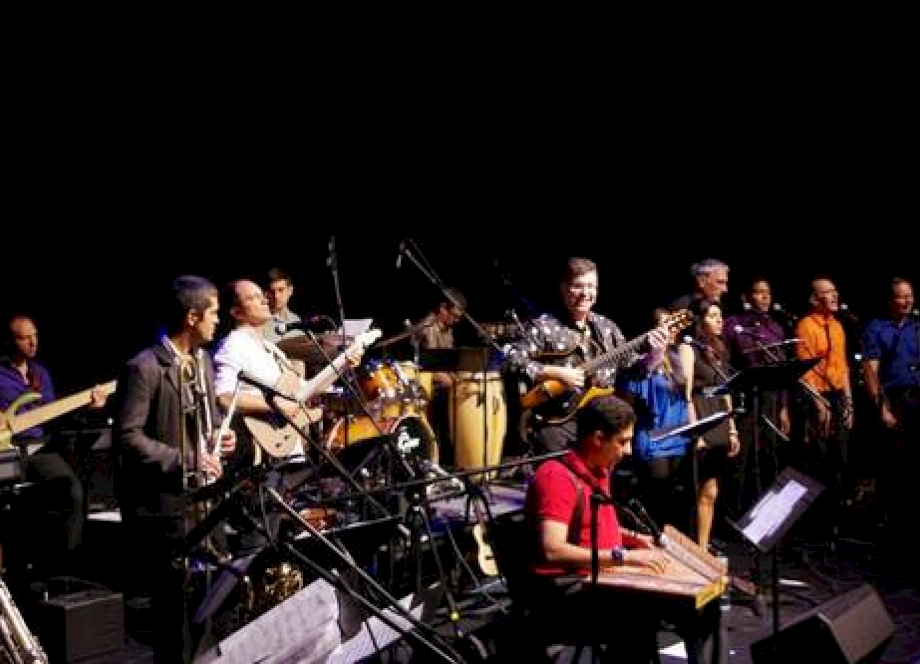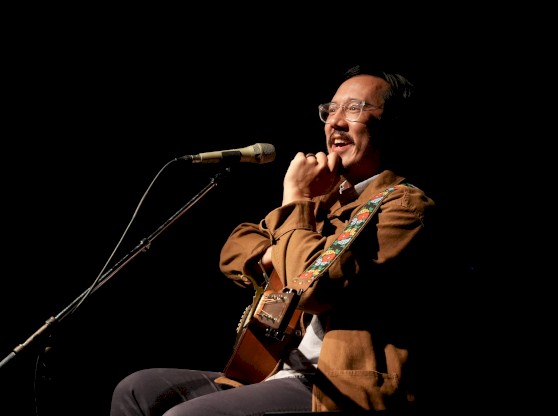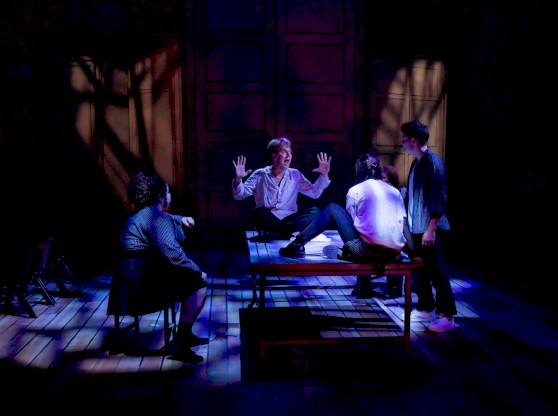By Hannah Fell
This is the type of music that tells the story of a culture as unique as the rhythms and harmonies that make the music sing. This music, with its chants and understated melodies, draws you into a place where time almost stands still and makes you think, “this is something different.”
Welson Tremura, director of UF’s Brazilian Music Institute, founded and organized the festival in 2001. Each year the institute brings in new guest artists. This year’s institute, which took place May 12-17, 2014, was directed by Tremura and sponsored by the School of Music, Center for Latin American Studies, Center for World Arts, U.S. Department of Education Title VI Program, Dr. Madelyn Lockhart and Visit Gainesville.
This year’s guest artists and clinicians were: Tremura, guitarist and vocalist; Larry Crook, percussionist; Ulisses Rocha, guitarist; Jorge Continentino, flutist, pífanoist and saxophonist; and Alexander Crook, percussionist. Participants enjoyed daily workshops and rehearsals leading up to a closing concert at the Squitieri Studio Theatre located within the Phillips Center.
“The Brazilian Music Institute is more than a festival,” Tremura says. “It’s a week of intensive classes where students can learn how to expand their knowledge of music.”
Brazilian music combines popular music, jazz, folk and classical music to create a new art form, Tremura says. This music isn’t like a band where the repertoire stays the same from year to year.
Nina Menezes, a graduate ethnomusicology student who participated in the institute for the first time this year says that she has gained valuable experiences thanks to the institute and has enjoyed learning from the guest artists and clinicians.
“I have grown in experience with performing world music,” Menezes says. “I have worked on music with other international students before, but we don’t put on a show at the end.”
Participating in the Brazilian Music Institute allowed the group to work toward the goal of a performance.
Jeremy Frusco, a graduate ethnomusicology student who also participated in the institute for the first time this year, says he was drawn to this group because it is a unique ensemble that gives students opportunities to perform a different style of music.
“I am really interested in the Italian social songs of World War II,” Frusco says. “Brazilian music is close to the type of music that I like to study.”
One of the things Frusco likes about Brazilian music is the way the music unfolds organically in addition to the cultural and social investment in the music.
“We aren’t given a score, just the lyrics,” Frusco says, noting that learning Brazilian music is about the process not just the end result. “It’s also about having fun, and this music is fun.”





